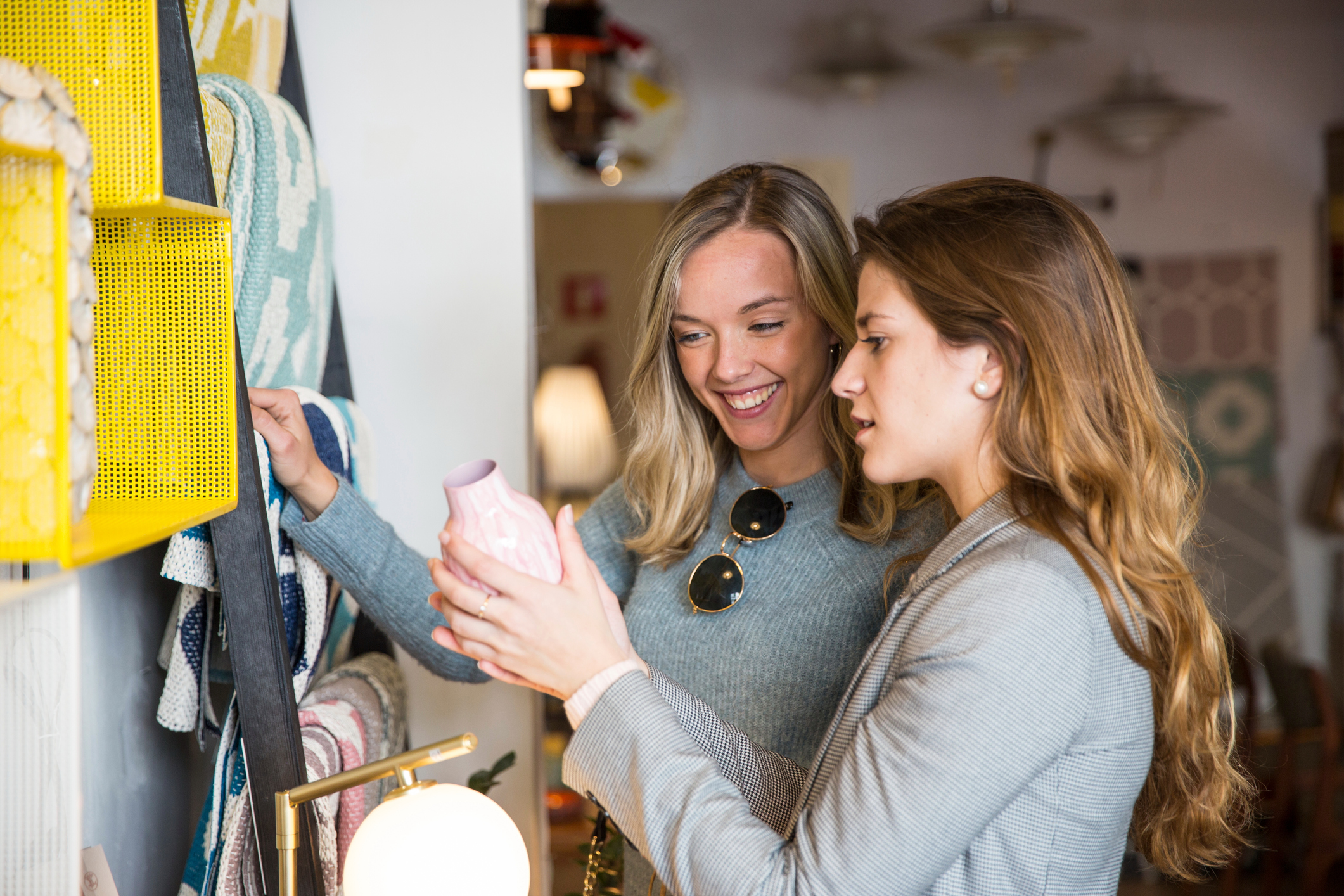Ethical businesses are on the rise: how to launch your own, and the challenges you may face along the way
Keen to launch your own eco-conscious business? Advice from those who've been there, done that might just help.

Keen to launch your own eco-conscious business? Advice from those who've been there, done that might just help.
Did you know? Ethical businesses and eco-entrepreneurship are on the up. The Financial Times cited a boom in entrepreneurship since the beginning of the global pandemic - in the UK alone, the number of registered companies increased by 30% year on year - and stats show that 40% of millennials have chosen work based on the sustainability and ethics of the company, with 50% being willing to take a pay cut to work somewhere more ethical.
The first is clearly down to a number of factors, one being the effect of COVID and lockdown on businesses, many of whom were forced to furlough and sometimes lay off staff. But what about the ethical business boom? How did a global pandemic make us focus on reducing our carbon footprint, ditching fast fashion and living more sustainably?
To get to the bottom of the true definition of ethical businesses - what the are, how you might launch one, and the challenges you might face along the way - we've spoken to Lucy Kebbell, who's in the process of launching a new sustainably minded membership platform, The WIP, dedicated to growing and nurturing brands and companies that are leading the way to a greener future.
Keep reading for her take on ethical businesses, and how she believes the pandemic has caused many to sit up and listen to more eco-conscious brands, in turn showing just how unsupported and underfunded they are.
Ethical businesses: your complete guide
What is an ethical business?
Unlike traditional models, an ethical business is one that puts people and planet above profit. It’s the new triple bottom line, and when it comes to starting a new small business, it appears to be the most popular choice.
How so? Well, in 2020, Forbes listed ‘cultural accountability’ as one of its top start up trends. The Ethical Consumer Report 2020 found that by year end 2019, ethical consumer spending and finance in the UK reached record levels of £98bn.
Marie Claire Newsletter
Celebrity news, beauty, fashion advice, and fascinating features, delivered straight to your inbox!
Aspects such as paying a living wage, employing those from disadvantaged backgrounds, sourcing fairly produced materials and making all operations as low impact as possible are just a few ways to be an ethical business.
Why should I launch an ethical business?
Because, in short, ethical and eco aware businesses are the future.
In the wake of the IPCC’s devastating report into the climate crisis, of course education around consumption is key, but aiding small, ethical businesses to scale sustainably will mean a more varied offering of products that have not been made at the detriment of people or planet.
What are the most important pillars of an ethical business?
1. Entrepreneurship
When left with a part time or even no job, many turned to entrepreneurship to earn a living and make their mark. Victoria Jenkins, founder of adaptive clothing label Unhidden, notes that she has come further in eighteen months than she has in the last four years.
“When I was free from running around for other clients I had the time and physical energy to pursue and launch Unhidden," she explains.
2. Time management
Like Victoria, I too took advantage of more time at home during lockdown. I launched my sustainable style website The Vendeur in 2018 after spending twelve years in luxury fashion, but learning of founders’ issues during COVID, spurred me on to create a new supportive business platform called The WIP.
Through my work with founders and entrepreneurs via The Vendeur, I have come to deeply respect the hard work, dedication and sacrifice of profit margins needed to create an ethical product.

3. Thoroughness
Launching a business these days is easier than ever thanks to a glut of information online, however when it comes to guidance for creating an ethical business, the information isn’t always easy to find.
The added issue of greenwashing means that any serious business owner must double check the source and transparency of any information they use.
4. Transparency
On that note - transparency in itself is a big factor in whether or not a business can call itself ethical.
Social media and the internet has given increased transparency to the companies that we are used to seeing and some of them have been shown to be less ethical than others.

5. Access to funding
Access to funding is also a crucial barrier to entry, with female founders, especially women of colour, struggling to find funding from traditional routes. Crowdfunding has been on the rise and this natural acceleration of new startups has had a positive impact on the economy.
Rosette Ale recently received backing for her upcycled denim brand Revival Ldn via Crowdfunder. “As a black female founder, I’ve struggled to invest into my business over the years due to low income and limited access to certain grants and opportunities,” she explains. “I chose to fund my business through a crowdfund as I felt it would be a great way to get my community involved in backing the greater mission of the brand of eradicating textile waste.”
Audrey Migot-Adholla, founder of Yala Jewellery agrees. “It's a sad reality that being Black and a woman puts me at a disadvantage compared to some of my entrepreneurial peers.”
6. Visibility
Coming from a background in Data Analysis, Audrey also found that a lack of network meant that finding startup capital was tough. Visibility is also a struggle for smaller businesses, like MAMATER Jewellery. “The biggest barrier for me is first and foremost, visibility,” founder Marilyne Kékéli says. “As a small jewellery business, I can only grow if I sell, and I can only sell if I am being consistently visible.”
Audrey agrees, in the wake of George Floyd’s murder and the resurgence of BLM, as a black owned brand, Yala saw an increase in sales. However this was swiftly followed by a decline back to previous levels.
For Victoria, visibility increased during the pandemic too thanks to more awareness around inclusivity and diversity. It would not have been possible to start her adaptive brand without this. However she laments that 'support for disabled founders like myself needs to increase as we do require a slightly different type of support especially around working hours and time frames.'
7. Flexibility
For skincare company Bolt Beauty, their entire message had to be rewritten overnight after the country went into lockdown. As a travel skincare company, Lisa Sexton’s new products were at risk of falling flat when they launched.
“Given the premise of our brand and products, this was extremely challenging for us. We had to completely rewrite our narrative," she explains. Bolt is thriving in a post lockdown world however Lisa would like to see more support in the form of tax relief for entrepreneurs and trading with the EU.

Ally Head is Marie Claire UK's Senior Health and Sustainability Editor, nine-time marathoner, and Boston Qualifying runner. Day-to-day, she heads up all strategy for her pillars, working across commissioning, features, and e-commerce, reporting on the latest health updates, writing the must-read wellness content, and rounding up the genuinely sustainable and squat-proof gym leggings worth *adding to basket*. She also spearheads the brand's annual Women in Sport covers, interviewing and shooting the likes of Mary Earps, Millie Bright, Daryll Neita, and Lavaia Nielsen. She's won a BSME for her sustainability work, regularly hosts panels and presents for events like the Sustainability Awards, and is a stickler for a strong stat, too, seeing over nine million total impressions on the January 2023 Wellness Issue she oversaw. Follow Ally on Instagram for more or get in touch.